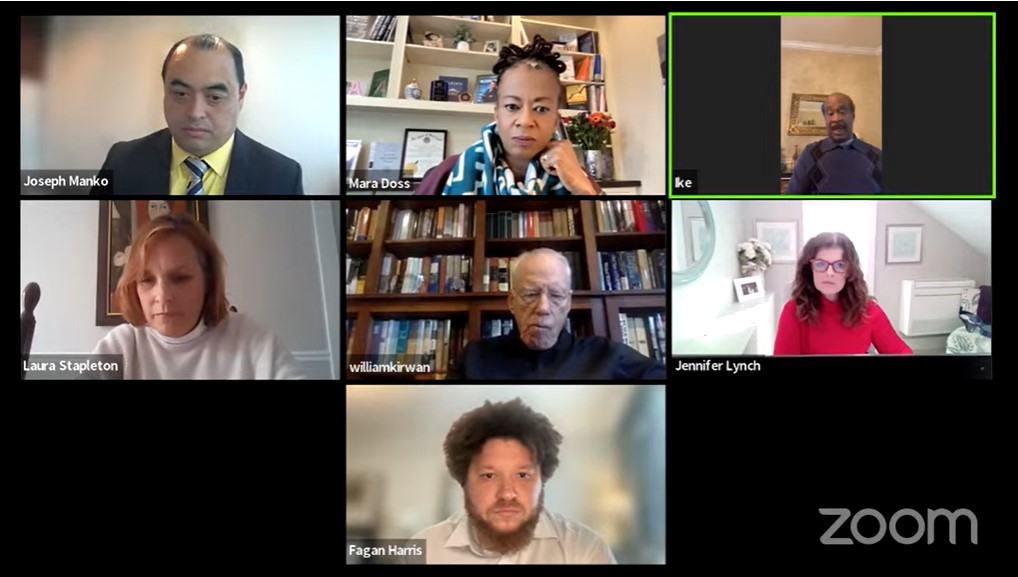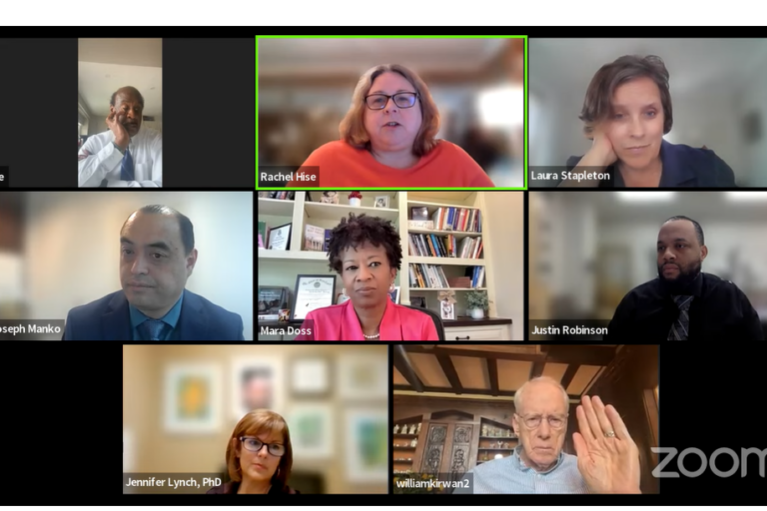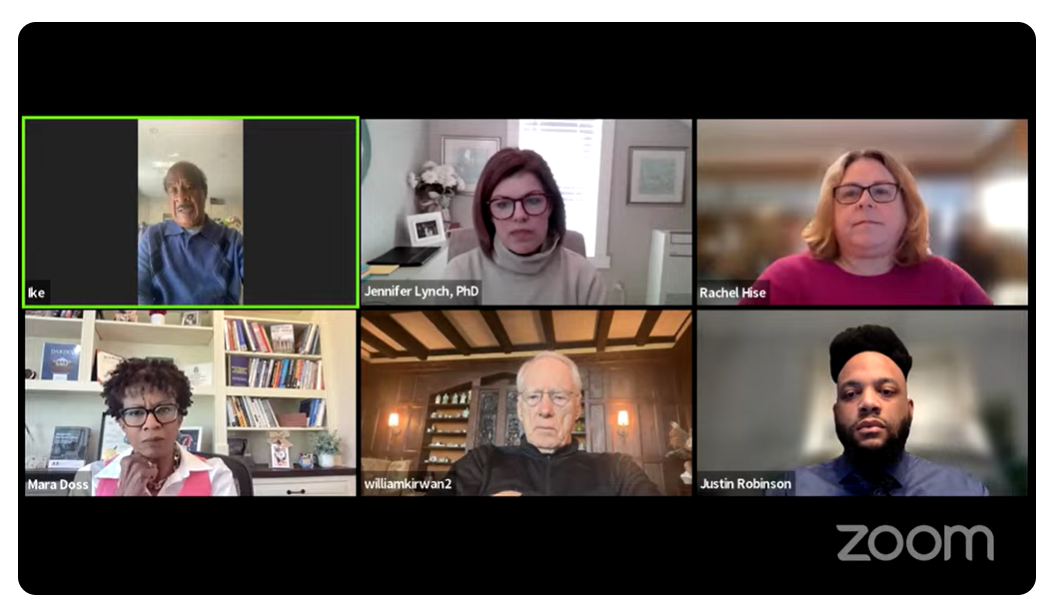Blueprint board continues work on $3.8 billion education plan, taking residents’ concerns into account

Members of a Maryland body created to oversee the state’s $3.8 billion massive education reform draft plan want to assure residents, educators and other stakeholders that they are listening.
“I have no doubt in my mind that this board, the [state] department of education, all of the people who labored over the last few years to put this plan together…is that their heartfelt goal is to get students to achieve success at the highest standards possible,” said former Montgomery County Executive Isiah “Ike” Leggett. “To think otherwise, would assume we are in a deliberate fraud to the public and to everyone else who is working on this.”
Leggett, who chairs the Blueprint for Maryland’s Future Accountability and Implementation Board, summarized his thoughts during a virtual session Thursday, a week after 49 people testified during two public hearings.
As of Thursday afternoon, the board had received nearly 110 emails and other written correspondence that offered recommendations to modify a proposal that was released last month.
The board reiterated its goals, based on legislation approved by the General Assembly, to improve early childhood education, hire and retain high-quality and diverse teachers, make sure students are prepared for college and technical careers and offer more resources for students in need.
They assessed some of the received comments and said they will make some tweaks to the 179-page document before the deadline for its approval Dec. 1.
For instance, the members said they will clarify that the term “industry credential” includes high school apprenticeships.
They also said they will amend the document to ensure that all teachers receive training in trauma-informed practices and cultural competency, rather than only requiring that training for new teachers.
The board noted that it needs guidance from the state Department of Education on a few items, such as incorporating “mixed-delivery” into a system that will serve young students in public schools and in private child care centers.
Local school systems (also called local education agencies or LEAs) can apply for waivers if not enough children ages 3- and 4-years-old enroll in prekindergarten, a situation that could arise for lack of space.
Although the Blueprint reforms aim to include private child care in the plan to educate more young children, several people who manage or work at private centers expressed frustration over the fact that it remains unclear how private centers would be integrated into a mixed delivery system.
“In the worst case scenario, LEA expansion as a result of waivers could cause many community-based partners to close completely. That’ll have a cascading impact of reducing available spaces for both pre-k and child care for children under 3,” Bill Hudson, executive director of the Family Child Care Alliance of Maryland, said during a public hearing Nov.10.
“One of the many lessons of the pandemic is the fact that child care is essential to working families.”
The board also discussed ways to help those working in early childhood education earn certification, which some private providers have said isn’t easy to do under requirements of the Blueprint plan.
Laura Stapleton — a Blueprint board member who chairs the Human Development and Quantitative Methodology Department at the University of Maryland, College Park — said she didn’t hear or see “evidence” that child care staff want to become certified pre-kindergarten teachers.
“I’m just worried we’re assuming that if we build a pathway they will come when maybe there is a very small supply of people who want to take on those jobs,” she said.
“I think that’s a little bit of fallacy,” replied Blueprint board member Fagan Harris, cofounder and CEO of Baltimore Corps, a nonprofit organization that works to advance racial justice and boost equity in that city.
“Because there’s no pathway, there’s no demand,” said Harris, who will become chief of staff for Gov.-elect Wes Moore. “We’ve got to create the door and a pathway and make sure we are creating that opportunity, so folks know how to get in line for it.”
For those who still wish to provide written comments on the plan can do so on or before Wednesday via email to [email protected].




 Creative Commons Attribution
Creative Commons Attribution